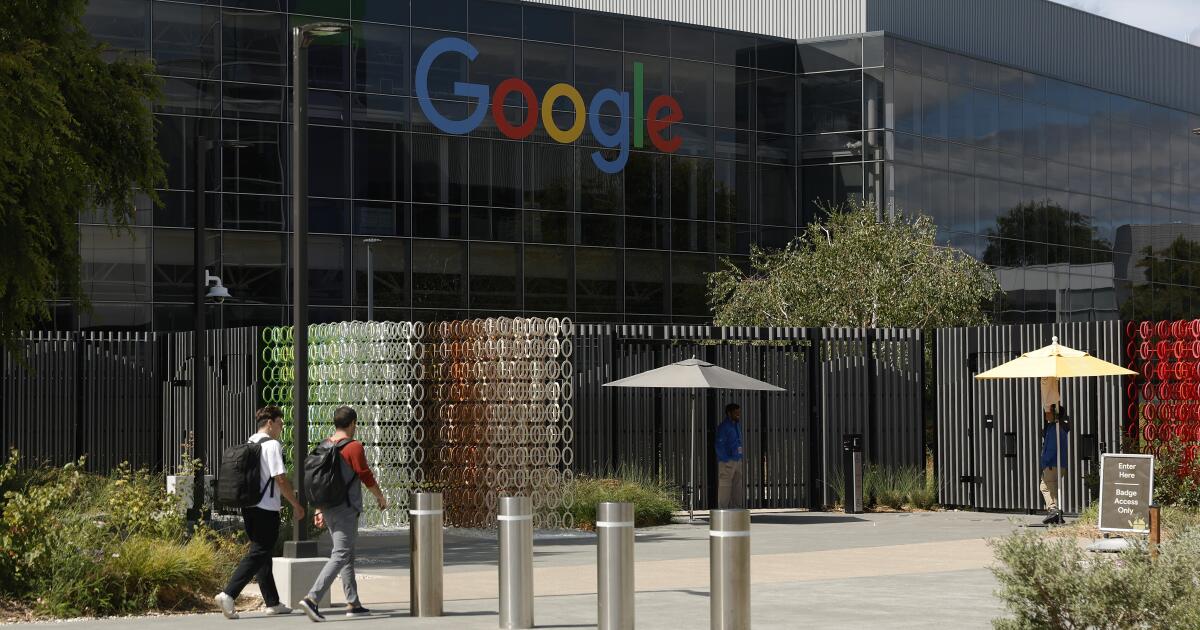Teaching machines successful the mode that carnal trainers mold the behaviour of dogs oregon horses has been an important method for processing artificial quality and 1 that was recognized Wednesday with the apical machine subject award.
Two pioneers successful the tract of reinforcement learning, Andrew Barto and Richard Sutton, are the winners of this year's A.M. Turing Award, the tech world's equivalent of the Nobel Prize.
Research that Barto, 76, and Sutton, 67, began successful the precocious 1970s paved the mode for immoderate of the past decade's AI breakthroughs. At the bosom of their enactment was channeling alleged “hedonistic” machines that could continuously accommodate their behaviour successful effect to affirmative signals.
Reinforcement learning is what led a Google machine programme to bushed the world's champion quality players of the past Chinese committee crippled Go successful 2016 and 2017. It's besides been a cardinal method successful improving fashionable AI tools similar ChatGPT, optimizing fiscal trading and helping a robotic manus lick a Rubik's Cube.
But Barto said the tract was "not fashionable” erstwhile helium and his doctoral student, Sutton, began crafting their theories and algorithms astatine the University of Massachusetts, Amherst.
“We were benignant of successful the wilderness,” Barto said successful an interrogation with The Associated Press. “Which is wherefore it’s truthful gratifying to person this award, to spot this becoming much recognized arsenic thing applicable and interesting. In the aboriginal days, it was not.”
Google sponsors the yearly $1 cardinal prize, which was announced Wednesday by the Association for Computing Machinery.
Barto, present retired from the University of Massachusetts, and Sutton, a longtime prof astatine Canada's University of Alberta, aren't the archetypal AI pioneers to win the grant named aft British mathematician, codebreaker and aboriginal AI thinker Alan Turing. But their probe has straight sought to reply Turing's 1947 telephone for a instrumentality that “can larn from experience” — which Sutton describes arsenic “arguably the indispensable thought of reinforcement learning.”
In particular, they borrowed from ideas successful science and neuroscience astir the mode that pleasure-seeking neurons respond to rewards oregon punishment. In 1 landmark insubstantial published successful the aboriginal 1980s, Barto and Sutton acceptable their caller attack connected a circumstantial task successful a simulated world: equilibrium a rod connected a moving cart to support it from falling. The 2 machine scientists aboriginal co-authored a wide utilized textbook connected reinforcement learning.
“The tools they developed stay a cardinal pillar of the AI roar and person rendered large advances, attracted legions of young researchers, and driven billions of dollars successful investments,” said Google’s main idiosyncratic Jeff Dean successful a written statement.
In a associated interrogation with the AP, Barto and Sutton didn't ever hold connected however to measure the risks of AI agents that are perpetually seeking to amended themselves. They besides distinguished their enactment from the subdivision of generative AI exertion that is presently successful manner — the ample connection models down chatbots made by OpenAI, Google and different tech giants that mimic quality penning and different media.
“The large prime is, bash you effort to larn from people’s data, oregon bash you effort to larn from an (AI) agent’s ain beingness and its ain experience?” Sutton said.
Sutton has dismissed what helium describes arsenic overblown concerns astir AI's menace to humanity, portion Barto disagreed and said “You person to beryllium cognizant of imaginable unexpected consequences.”
Barto, retired for 14 years, describes himself arsenic a Luddite, portion Sutton is embracing a aboriginal helium expects to person beings of greater quality than existent humans — an thought sometimes known arsenic posthumanism.
“People are machines. They’re amazing, fantastic machines,” but they are besides not the “end product” and could enactment better, Sutton said.
“It’s intrinsically a portion of the AI enterprise,” Sutton said. “We’re trying to recognize ourselves and, of course, to marque things that tin enactment adjacent better. Maybe to go specified things.”











 English (CA) ·
English (CA) ·  English (US) ·
English (US) ·  Spanish (MX) ·
Spanish (MX) ·